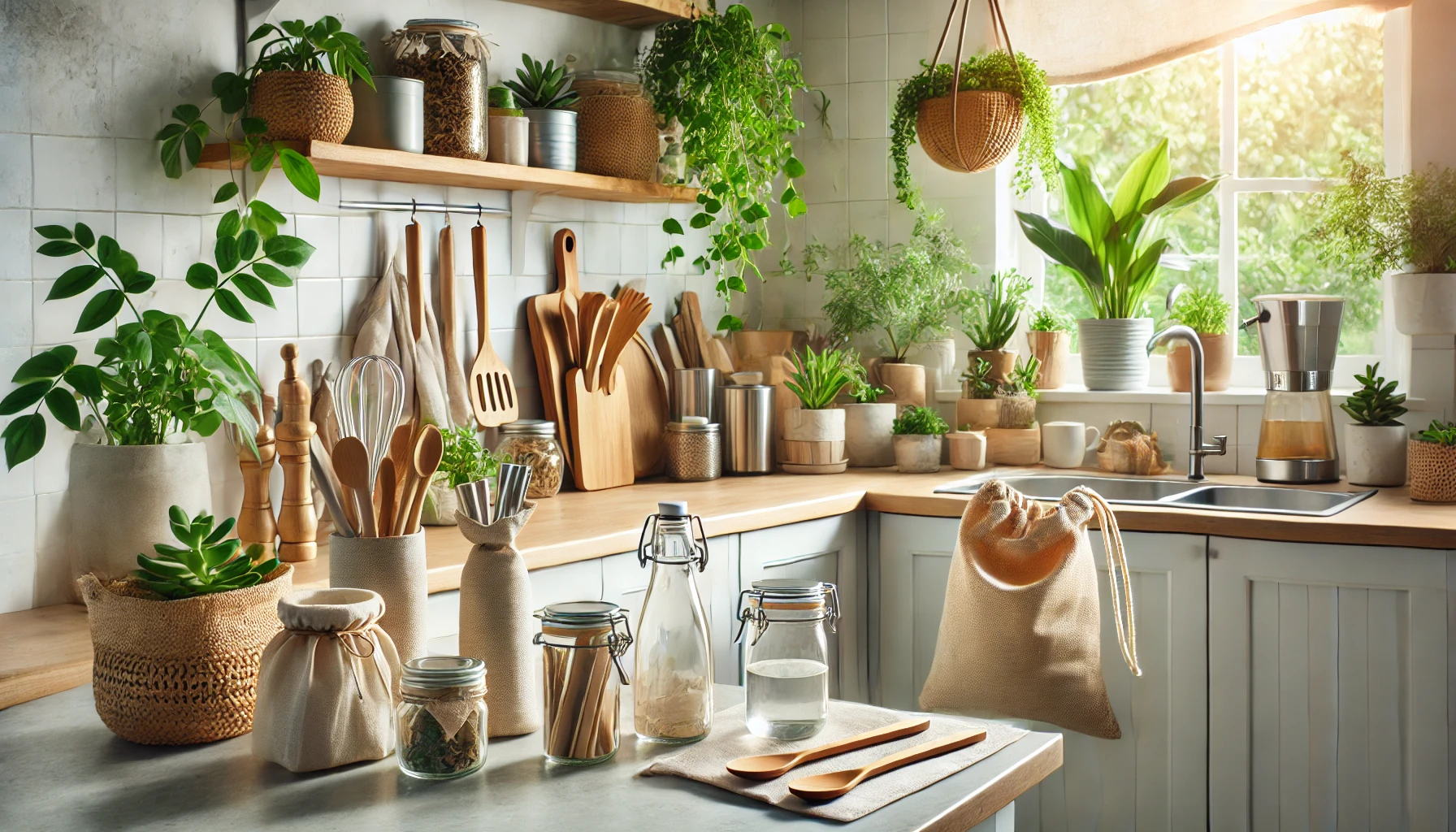What is a Zero-Waste Lifestyle?
The zero-waste idea is all about trying to waste as little as possible at all times, including by recycling more and eliminating waste. It entails changing the way that we use resources and make decisions regarding their utilization with the aim of bringing about sustainability in society’s utilization of the natural resources.
Importance of Zero-Waste Practices in Today’s World
When the global environment is threatened with factors such as pollution and climate change, going for an option that will create minimal waste is ideal. Minimizing waste production, therefore helps to conserve natural resources, prevent pollution and effectively encourage sustainable population life models for the future generations.
The Basics of Going Zero-Waste
Understanding the 5 R’s: Refuse, Reduce, Reuse, Recycle, Rot
The 5 R’s provide a framework to guide us towards zero waste:
- Refuse unnecessary items and reduce consumption.
- Reduce overall use by choosing higher-quality and longer-lasting products.
- Reuse items whenever possible by repurposing or choosing reusable options.
- Recycle what cannot be refused, reduced, or reused effectively.
- Rot organic materials through composting, returning nutrients back to the earth and reducing landfill waste.
Starting Small: Easy Steps to Reduce Waste
Choosing to go zero-waste is possible by eliminating single-use plastics, going for the whole bulk, and other changes like carrying a reusable water bottle, using a reusable coffee cup and using cloth bags while shopping at the supermarket. Individually the changes are small and can be easily achieved which cumulatively translate into a big change.
Zero-Waste at Home
Kitchen and Cooking
Composting Basics
Start a compost bin and turn kitchen scraps into useful items that can be useful for gardening and farming. Composting not only contributes to the improvement of soil fertility but also lessen the emission of methane from the landfill which is a cause of green effect.
Sustainable Food Storage Options
Stop the use of disposable items such as plastic containers and bags and replace them with clean ones like beeswax wraps and silicone lids, glass containers as they are healthier for storing foods.
Bathroom Tips
Eco-friendly Personal Care Products
Buy products with little to no packaging or make your own natural products like soaps and shampoos from natural ingredients.
Minimizing Water Waste
One of the key aspects of a zero-waste life is water conservation. Fix water-efficient faucets and toilets, and reduce waste by not leaving the tap open while brushing or washing hands.
Living and Bedroom
Furniture and Décor from Recycled Materials
Choose furniture that is made from recycled material or material that is naturally sourced. Try and find the local craftsmen who can make beautiful things from recycled products.
Reducing Energy Consumption
Promote energy conservation through the proper use of energy saving appliances in the house as well as regulation of the thermostat and proper insulation of the house to minimize on heating and cooling.
Zero-Waste Lifestyle Outside the Home
Shopping and Consumables
Choosing Bulk and Package-Free Goods
Supermarkets that make regular stocking and allow their customers to bring their own containers to reduce on packaging. It not only helps to cut waste costs but many a times prove to be cost effective strategy.
Reusable Shopping Bags and Containers
When going for reusable bags and containers, ensure you get durable ones. Having these things at the ready helps avoid the temptation to use single-use plastics as the default.
Work and School
Sustainable Stationery and Supplies
Keep tissue and note papers recycled and use pens to avoid using cartridges which cannot be reused. Encourage the use of computers to reduce the use of writing materials by half, especially in offices and schools.
Zero-Waste and the Community
Community Gardening and Local Food Sources
Promote localized agricultural production to minimize the emission of greenhouse gases resulting from the transportation of food . Organise or join a community garden which creates togetherness of people and supports local fresh food production.
Participating in Local Clean-Ups and Environmental Groups
Participation in local clean up activities also promotes the preservation of natural environment and fosters better understanding of the effects of littering. To become more effective through group action, joining an environmental group can help.
Challenges and Solutions
Common Obstacles in Maintaining a Zero-Waste Lifestyle
Transitioning to a zero-waste lifestyle can be challenging due to the convenience and availability of disposable products. Overcome these by planning ahead and making zero-waste choices more convenient and accessible in your daily life.
Innovative Solutions and Alternatives
The market for zero-waste products is growing, offering innovative alternatives like biodegradable utensils, reusable makeup pads, and zero-waste packaging options that fit seamlessly into everyday life.
Future Trends in Zero-Waste Practices
Technology’s Role in Zero-Waste
Technological advancements are set to revolutionize waste management with smart composting systems, apps for tracking waste reduction, and platforms that facilitate sharing or reusing items within communities.
Upcoming Sustainable Innovations
Future innovations in biodegradable materials and technologies that support circular economies are crucial. These advancements promise to extend the lifecycle of resources and reduce waste, shaping a sustainable future.
How to Influence Others and Spread Awareness
Educating Friends and Family
Lead by example and share your zero-waste journey with others. Demonstrating the tangible benefits of living sustainably can motivate others to make similar changes.
Social Media and Community Engagement
Leverage social media to share tips, successes, and challenges. This can inspire a broader audience and build a community of like-minded individuals committed to reducing waste.
Conclusion
Recap of the Importance and Impact of Zero-Waste Practices
Embracing a zero-waste lifestyle is crucial for protecting our planet. It conserves resources, reduces pollution, and fosters sustainable living.
Encouragement and Final Thoughts on Continuing the Journey
Every small step towards zero waste contributes to a larger impact. By continuing to make informed and conscious choices, we can all contribute to a healthier planet and a sustainable future. Let’s commit to reducing our waste and living more sustainably, together.
FAQ
What is the easiest way to start a zero-waste lifestyle?
Begin by replacing single-use items with reusable alternatives, such as cloth bags, water bottles, and coffee cups.
How do I handle waste when traveling?
Pack reusable items and avoid single-use plastics. Dispose of waste according to local recycling rules.
Can zero-waste save money?
Yes, zero-waste practices like using reusable items and buying in bulk can reduce long-term expenses.
What are the best zero-waste items to invest in initially?
Start with reusable bags, water bottles, beeswax wraps, and silicone lids to make an immediate impact.
How do I persuade others to join me in living zero-waste?
Lead by example, share the benefits and savings, and provide simple tips to get them started.








